Mensa Conference on Talent Development – November 2014
The traditional Mensa Conference on Talent Development brought new insights, experience, and stimuli for schools, clubs, after school groups, and families. This report also includes links to related websites.
PhDr. Jitka Fořtíková, Ph.D., presented in her lecture “How to Develop the Intellectual Capabilities of Children” two projects for preschool children - the Mensa and NTC learning system, and Fort IQ – that bring into the work with children a lot of stimuli supporting their intellectual development. Her neurological argumentation is alarming and convincing: by the age of 6-7, the brain is 70% developed; In children of bilingual families, there is a higher level of intellect at this age when compared to others, which she attributes to the many stimuli given by bilingualism - the child processes not only what it hears, but in addition perceives gestures and mimicry (a similar effect was observed in kindergarten with a native speaker) and distinguishes how to talk with mum, dad, teacher, or native speaker.
Dr. Fořtíková creates worksheets that are helpful in developing the intellect of young children that can be developed while preparing them for school attendance. They are focused on 10 areas, and their mastery means school maturity. The worksheets are not boring, they contain motivation, children like them, and another bonus is that they teach children to calm down for a while and to concentrate, no matter if it is in the kindergarten, primary school, or at home where a nice moment of parent-child communication is an additional bonus. Pre-school introduction to letters and numbers, which was not recommended in recent years is, according to Dr. Fořtíková, very fitting for the pre-schoolers, and helps fully master reading in the first year. Details can be found in her new book “Developing Cognitive Capabilities in Children in Kindergartens,” and also suggests enigmatic puzzles and other interesting tasks that can be found on the Mensa and Children’s Mensa web sites. She also comes with a revelation that the effect of a higher number of stimuli in the normal population is greater than that in gifted children.
Any more words are useless, it is time for actions - in the kindergartens, families, and later in schools, after school clubs, clubs, etc. Nursery schools nowadays employ over 1,000 teachers trained in Dr Rajovic’s NTC method (Dr. Rajovic was a guest of and gave a lecture at the March Mensa Conference). Even at this conference, the pre-school panel was devoted to the NTC learning system, while the panel for the primary schools concentrated on the work with gifted children in schools, clubs, and schools for gifted children. An interesting possibility lies in co-operation with universities, facilitation of extraordinary development, and broadening children’s views. (Gifted Children’s Club Olomouc, Science Centre Fort Knowledge, created through the renovation of a former Artillery warehouse, right in the heart of Olomouc).
Dr. Fořtíková was followed by prof. RNDr. Milan Hejný, CSc. (the Hejný method of teaching mathematics) with another hot topic – teaching maths in a constructive way. The Hejný method is already being used in many schools, the author’s performance was nevertheless beneficial, with interesting details about the use of the method in practice, as well as its effectiveness. New textbooks are already being written for the 6th and 7th years, and continuation for secondary schools is planned. The same principles would be useful in teaching university maths.
The pillar is – according to Prof. Hejný – a loving teacher and a suitable set of tasks; the pupil learns through solving tasks, not through being “fed” data. Discussion among pupils is crucial, and the teacher’s silence during such discussions is beneficial. We were shown examples of insensitive interference of the teacher in the discussion, or his concluding summary before it is time, can disrupt thought processes of the pupil who is at the very moment on the best way to understanding.
And a suitable set of tasks? Its creation requires a profound knowledge of the development of mathematical recognition, so that the individual can repeat briefly the walk in a very quick way the same path mankind walked before. Therefore, problems must be created, during the solution of which the student can master division, fractions, and units in a better way than now, when they are simply told about it. The tasks themselves are interesting and motivating: What age are you going to be in a kiloday? Does the math class last longer or less than a miliyear? Anyone who can give me a number made up of the numerals 2,3, and 5 that is divisible by 3, will get an A. If you receive the same response as Prof. Hejný did (“And am I going to get an A even if I prove it is not possible?”), you can rest assured that the good seed has blossomed. The conference participants thanked Professor Hejný with a long standing-applause.
Another presentation was on the use of Eye Tracking, which was for research in the field of education and evaluation at the Faculty of Education in Ostrava. As they are aimed at students preferring science, we can only wish for its contribution towards a growth in the number of students of natural and technical sciences.
And finally – a thank you to the organizers. Thank you for the selection of well-educated lecturers, the impressive venue of the Art Nouveau National House by the architect Jan Kotěra in Prostějov, and for all the care and attention you gave us.
RNDr. Danuše Kunovjánková
Conference Participant
Teacher at ZŠ Květnového vítězství 1554, Prague
Related topics
19.11.2014
Mensa Conference on Talent Development (November 2014) 19.11.2014 Lenka Šnajdrová |
|||
|---|---|---|---|
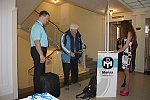 |
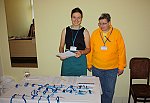 |
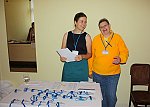 |
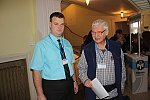 |
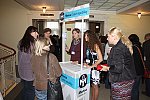 |
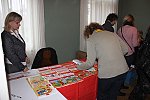 |
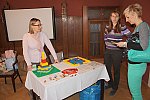 |
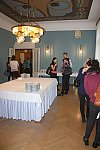 |
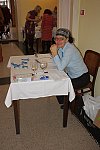 |
 |
 |
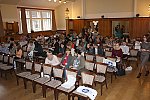 |
 |
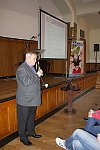 |
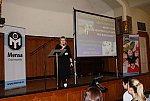 |
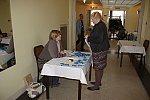 |
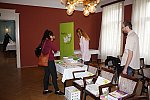 |
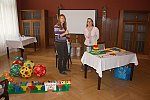 |
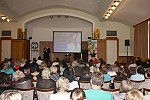 |
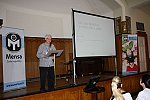 |
 |
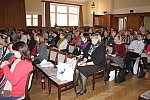 |
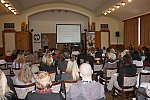 |
 |
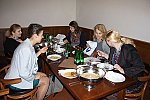 |
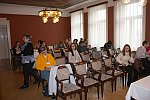 |
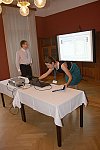 |
 |
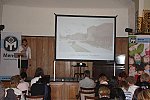 |
 |
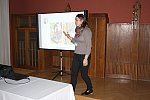 |
 |
 |
 |
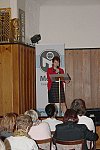 |
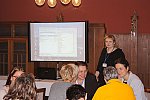 |
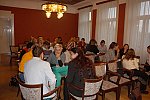 |
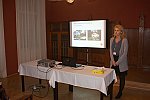 |
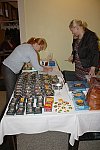 |
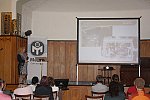 |
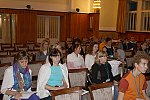 |
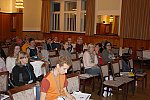 |
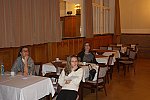 |
|
